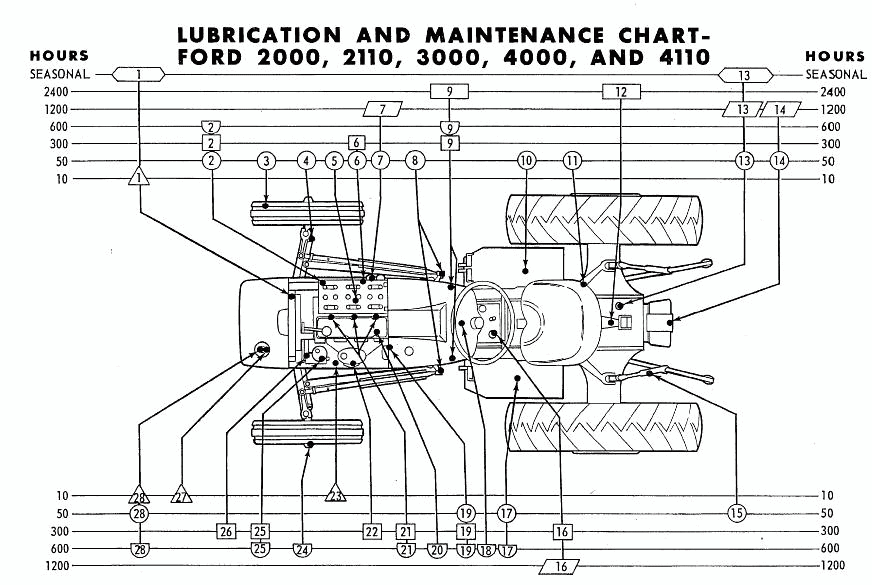When it comes to understanding the electrical system of your Ford 5000 tractor, having a wiring diagram is essential. A Ford 5000 Tractor Wiring Diagram provides a visual representation of the electrical connections and wiring layout of the tractor. This diagram is a valuable tool for anyone working on the electrical system of the Ford 5000 tractor, whether it’s for maintenance, repairs, or upgrades. By having a clear understanding of the wiring diagram, you can ensure that all electrical components are properly connected and functioning correctly.
Why Ford 5000 Tractor Wiring Diagrams are Essential
Understanding the wiring diagram of your Ford 5000 tractor is crucial for several reasons:
- Helps identify the location of electrical components
- Guides in connecting wires and components correctly
- Aids in troubleshooting electrical issues
- Ensures safety by preventing electrical shorts or malfunctions
How to Read and Interpret Ford 5000 Tractor Wiring Diagrams
Reading and interpreting a Ford 5000 Tractor Wiring Diagram may seem daunting at first, but with the right approach, it can be a straightforward process:
- Identify the key components and connections on the diagram
- Follow the color-coding of wires for easy identification
- Refer to the legend or key for symbols and abbreviations
- Trace the wiring paths to understand the flow of electricity
Using Wiring Diagrams for Troubleshooting Electrical Problems
When faced with electrical issues on your Ford 5000 tractor, a wiring diagram can be a valuable resource for troubleshooting:
- Locate the specific component or circuit causing the problem
- Check for continuity and proper connections using the diagram
- Identify potential areas of concern based on the wiring layout
- Refer to the diagram to make accurate repairs or replacements
Importance of Safety When Working with Electrical Systems
Working with electrical systems, including using wiring diagrams, requires a high level of safety precautions to prevent accidents or injuries. Here are some safety tips and best practices to keep in mind:
- Always disconnect the battery before working on the electrical system
- Use insulated tools to avoid electrical shocks
- Avoid working on electrical components in wet or damp conditions
- Double-check all connections and wiring before powering up the system
Ford 5000 Tractor Wiring Diagram
5000 Ford Tractor Electrical Wiring Diagram | My site

Ford 5000 Ignition Switch Wiring Diagram – Wiring Diagram
Ford 5000 Tractor Wiring Diagram Collection – Faceitsalon.com

Ford 5000 Tractor Wiring Diagram

Ford 5000 Tractor Electrical Wiring Diagram / Ford 5000 Tractor Wiring

ford 5000 tractor ignition switch wiring diagram – Wiring Diagram and
